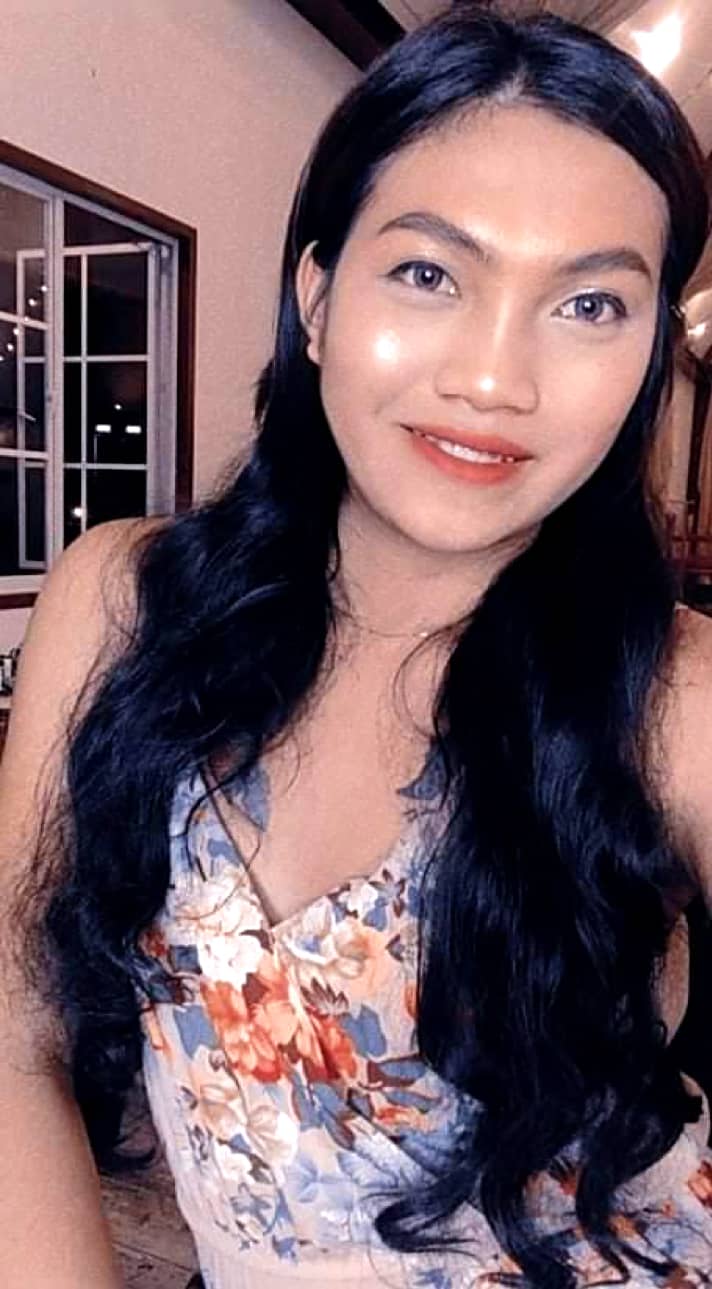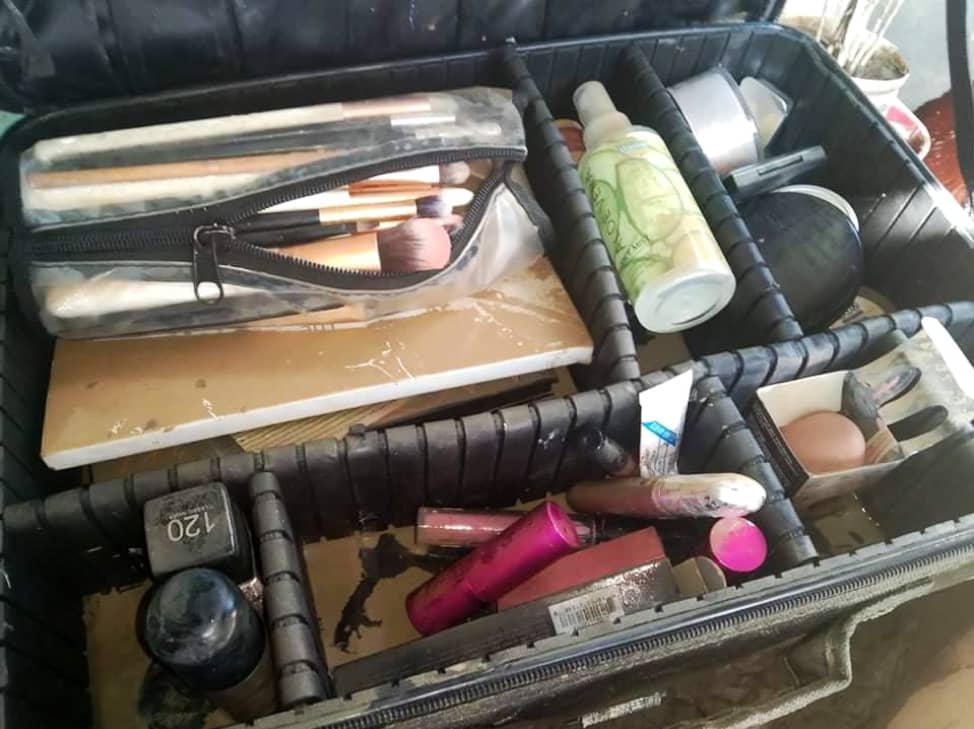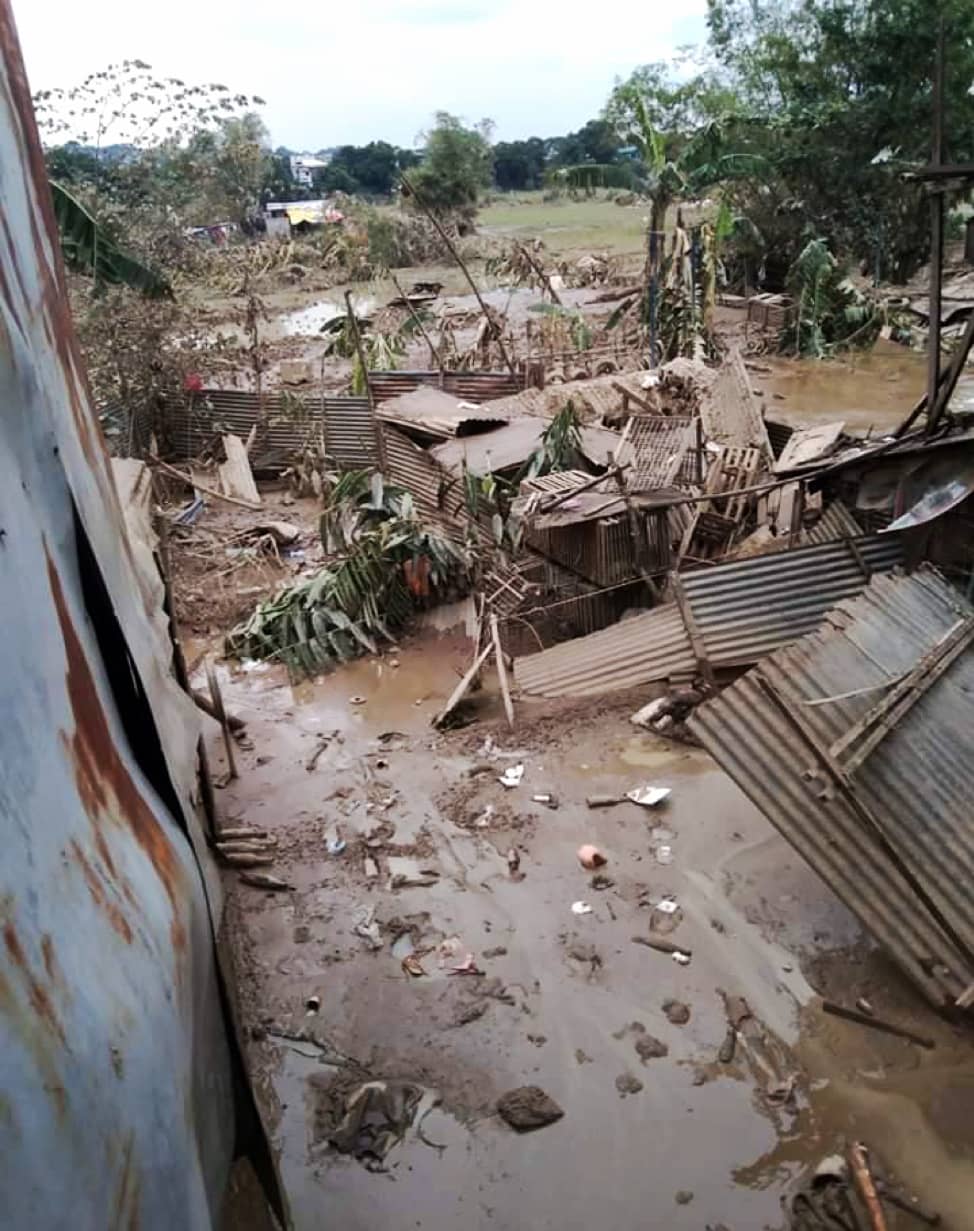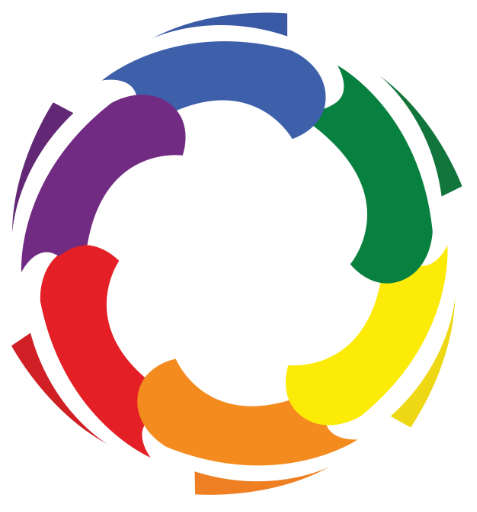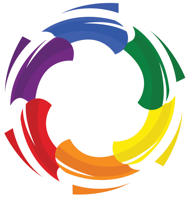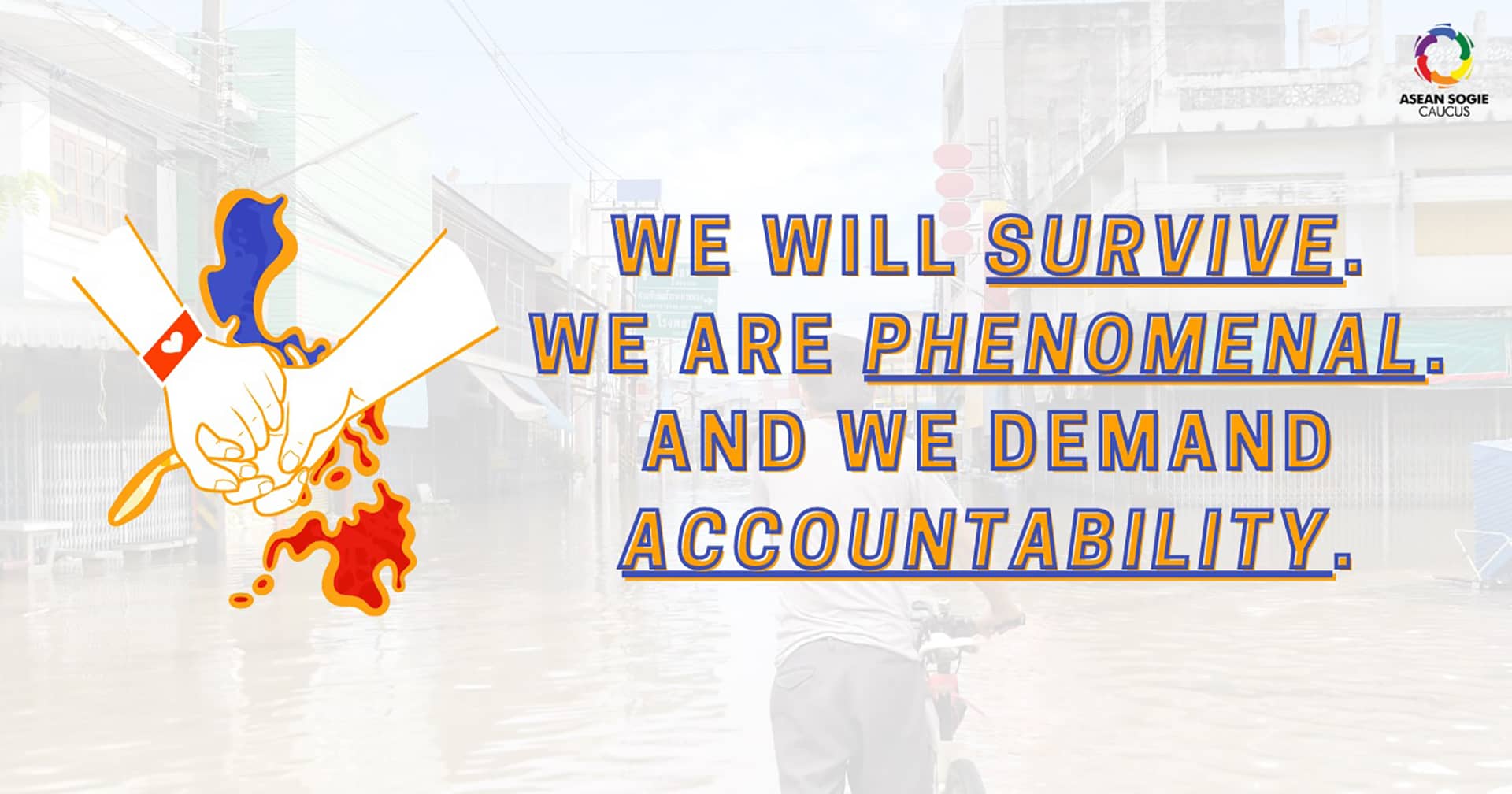By: Ryan Silverio, Regional Coordinator, ASEAN SOGIE Caucus
In the early part of November 2020, the Philippines, already battered by the on-going COVID-19 pandemic, was hit by a series of powerful typhoons. First was the super typhoon Rolly (internationally known as Goni) whose sustained winds of around 220km per hour left devastations in Eastern provinces. Second was the super typhoon Ulysses (Vamco), the strongest that hit the country so far, causing massive rains that left several towns and cities flooded.
Typhoons are not uncommon in the Philippines. But the gravity of their impact is compounded by systemic problems. There is the failure to provide massive and reliable warnings to the general public. Ironically, a media company that has a broadcasting system that reaches far-flung provinces was ordered to shut down by the government. There are the environmental factors triggered by illegal logging, quarrying, and mining operations, even in watershed areas.
And whenever disasters strike, including typhoons, marginalized groups such as children, women, persons with disabilities, as well as lesbian, gay, bisexual, transgender, intersex, queer and gender-diverse (LGBTIQ) persons, are more often left behind. The exclusion specifically felt by LGBTIQ persons are triggered by several factors, including varying levels of criminalization, legal and policy related discrimination, and marginalization within the family, communities, service delivery organizations, and other social institutions. Humanitarian actors, tasked to provide inclusive services, tend to frame its gender-based approaches using a limited binary view.
Dreams washed away
Kendra Nicole Madrigal is a transgender woman who dreams of being a businesswoman. Facing difficulty in finding a stable job because of her gender identity, she decided to settle working as a freelance hair and make-up stylist. Life is not easy for Kendra even prior to the onslaught of the super typhoon. She recalled that finding clients while in the middle of the pandemic was due to sheer luck. On a good day she would earn around USD60 from a single gig, yet this is not enough to sustain her family. As a freelancer, she works without security of tenure, no access to social insurance or other benefits as other workers.
“Nangyari ang pagbaha sa kasagsagan ng malakas na hangin. Kami po ng aking pamilya ay nabigla sa pagtaas ng tubig. Ang aking naisalba lamang ay ang aking kasuotan noong araw na iyon, at wala na akong gamit na nadala kahit isa (Flood water rose at the height of the strong winds. My family was shocked by the rapid rise of the water. I was only able to save what I was wearing at that time. None of my other belongings were saved),” recalls Kendra. Her immediate neighbors, located in a low-income area in San Mateo, Rizal Province, saw their houses submerged.
After the flood subsided, Kendra and her family went back home to recover items that could be saved. The flood left knee-high mud inside their house. Sadly, Kendra’s beauty tools – her make-up kits, hair brushes, curlers, and blow dryers – were destroyed by dirt and mixed with garbage. “Nasira ang aking mga pangarap na naipundar, at na-washout ang aking mga kagamitang panghanap-buhay (The dreams I invested on were destroyed, and the things I use to earn a living were washed out),” she laments.
A sheer sense of hope keeps her afloat. "Kahit ano pa mang kalamidad o pagsubok ang ating haharapin, lagi nating tatandaan na kakayaning natin 'to...laban lang at 'wag makalimot sa poong maykapal (In whatever calamity or trials we face, always remember that we can endure these… keep up the fight and don't forget to reach out to the divine)," Kendra reminds herself.
Kendra’s story is not uncommon. Days after the storm, social media was flooded by personal narratives of LGBTIQ folks even publicly posted photos depicting their hardships. Different lives, different stories, all woven into the common narrative of being left behind. Government left them in the dark without adequate warning about an imminent flood. Despite limited relief goods provided by local officials and some NGOs, many were left to rebuild their own lives and livelihood. Some were lucky to have personal networks who have provided them with immediate support. As Kendra shared, “walang LGBT group na tumulong pero may mga friends akong gay and transgender na tumulong (there are no LGBT groups who helped but I have gay and transgender friends who gave some support).”
Recognizing LGBTIQ lives in disaster response
For years, LGBTIQ activists from Asia and the Pacific have been advocating for SOGIESC-inclusive and appropriate humanitarian responses. Be it in the context of a super typhoon, an earthquake, or an armed conflict, activists lament about how LGBTIQ persons have been systematically ignored, left to be criminalized, discriminated against in temporary shelters, or worse, blamed as the reason for disasters.
In a statement issued by LGBTIQ activists back in 2018, there was a strong call for a change in the humanitarian system. There was the call for accountability, meaningful participation and serious engagement with LGBTIQ organizations, rather than a top-down, tokenistic approach. There was a push for intersectional responses, recognizing that more often than not, marginalized persons and groups are those facing serious risks when emergency strikes. There was a clamor for equitable distribution of aid and other resources, ensuring that LGBTIQ are not left in the margins. Furthermore, there was a demand to address all forms of gender-based violence occurring during and even after disaster situations.
All of these are just as important today.
In the aftermath of the recent super typhoon, several local LGBTIQ groups acted in solidarity, raising funds, distributing relief packages, and doing check-ins to address the mental health needs of their colleagues. Left behind by governments and international humanitarian actors, we have no choice but to support our own communities.
Such is our immediate task, but we should go beyond. There is still a long way to go before humanitarian actors, especially in the Philippines, takes on a SOGIESC-inclusive disaster response. Demanding accountability is our first step.
We appeal for your solidarity. Help Kendra Nicole Madrigal rebuild her livelihood. You can donate any amount directly to her (via G-Cash # 09158998005, M.J. Posada). You can also donate to ASC and we will make sure that your support goes directly to our LGBTIQ siblings affected by the calamity. For donations via Paypal, you can click this link.
